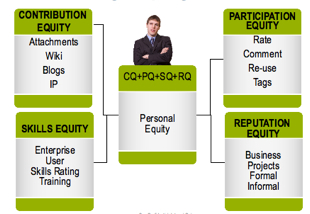Learn more
- Mar 17, 2009
KiWi Annual Meeting
Last week the partners of the KiWi (Knowledge In a Wiki) project met in Salzburg for the 2009 Annual Meeting.
Sebastian Schaffert and his team demonstrated the latest version of this semantic based framework based on wiki principles and built on JBoss Seam.
You can take a look at the online showcase and download the one click installer of the pre-release.
Sebastian emphasised that KiWi will follow Linus Torvald’s maxim of releasing early and releasing often.
In June 2009 KiWi 1.0 should be ready, followed by 1.5 in December 2009, at which time Enabling Technologies and a first implementation of the uses cases will be included in the system.
After hearing talks about the KiWi User experience, data model and transaction management, we learned about the status of reasoning, querying, information extraction and personalisation of the Enabling Technologies groups (online slides forthcoming here).
Peter Reiser presented the Sun use case, in which the focus now is on realising an expert finder mechanism based on the “Community Equity” concept found in Sun Spaces (their highly popular, heavily customized version of Confluence).
In short Community Equity is a system for analysing the social activities in a community and measuring the value of the contributions to the community. Social activities are anything from creating content to simply viewing it. These activities are used to calculate the Community Equity (which is simply a number) of content, tags and people.
Consider this example for a content page: The more people view, download, reuse, comment on or rated the page positively, the higher the page’s Information Equity will be.
In turn the community members acquire Contribution Equity through the content items they create, i. e. the Information Equity of a content item “spills over” to its creator.
The same goes for Tag Equity: Each tag obtains the Equity from all the pages it is applied to. E.g. if there are 3 pages with the tag “JBoss” with Information equity of 10, 5 and 20, then the Tag Equity of JBoss is 35.
These things alone is very helpful for motivating people to contribute to the community and for judging the quality of content and ranking it accordingly.
On top of that, the Equity system allows for a expert finder system. People are related to all the tags that are used on the content items they created. Imagine a contributor has created several documents that were tagged with java and the sum of information equity of those pages is 550, then the person also has
That way a search for “Java” doesn’t only bring documents tagged with java, but also people with expertise in Java.
In KiWi this Community Equity system will be implemented and extended. For one, instead of flat tags KiWi will use concepts coming from SKOS thesauri, which will be managed using PoolParty.
These thesauri act as a shared knowledge model. In this way synonyms, parent/child concept relationships, etc. can be considered for Equity calculation, therby taking personalization, querying and expert finding to a whole new level.
Research will engage with questions like how should the Equity disperse through the graph: Imagine a community member with high Equity in “JBoss”. This means she probably has good expertise in Java too. As this subconcept relationship is expressed in the thesaurus, it is possible to transfer Equity from JBoss to Java, but one has to consider what percentage the equity will be transferred, if Equity only can only spread upwards from subconcept to parent concept or whether other kinds of relationships also warrant the transfer of some Equity.
